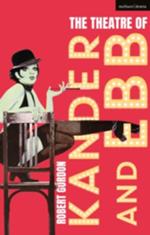Identifying the theatrical approach that renders their musical dramaturgy unique, this book explores their importance within, and contribution to, musical theatre history. Through their biggest hits, Cabaret (1966) and Chicago (1975), Kander and Ebb have been performed on the stage more times both within and outside of the USA than any other American musical theatre writers. Unlike Sondheim, whose work from 1964 increasingly aspired towards the avant-garde, Kander and Ebb located their projects in a nexus between art and commercial entertainment, seeking to deconstruct popular forms in order to expose their ideological function. This book investigates the full range of Kander and Ebb’s collaboration from the pure comic entertainment of 70, Girls, 70 (1971) and Curtains (2006) to more overtly serious musicals such as Kiss of the Spiderwoman (1992), The Scottsboro Boys (2010) and The Visit (2014), which were less commercially successful precisely because they addressed disturbing subjects. It explores how the difficult material inspired beautiful, though challenging, scores. It also probes how the ironic counterpointing of luscious music with witty and demotic lyrics challenges the desire of a Broadway audience for escapist entertainment, devoid of critical self-reflection, in order to create complex, yet popular, masterpieces of the genre.

The theatre of Kander and Ebb
ISBN: 9781350107090
Format: Paperback
Publisher: Methuen Drama (UBD)
Origin: GB
Release Date: August, 2025


